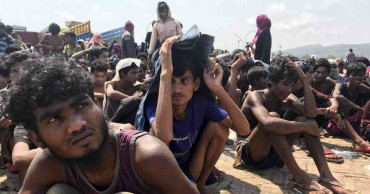Humanitarian Response
Afghanistan situation remains extremely fluid: UN
The situation across Afghanistan remained extremely fluid and bolstered support for the humanitarian response inside the country was urgently needed, according to the UN officials.
While widespread fighting had decreased since the takeover of the country by the Taliban on August 15, the full impact of the evolving situation was not yet clear, Shabia Mantoo, the spokesperson for the UNHCR, the UN refugee agency, said at a press briefing Friday.
The vast majority of Afghans were not able to leave the country through regular channels, Shabia said.
At least 550,000 people had been forcibly displaced inside Afghanistan this year, but there were also 2.9 million internally displaced persons from prior crises and 2.6 million Afghans who had fled worldwide over the past decades, she added.
Read: Chaos as thousands flee Afghanistan after Taliban takeover
At the start of 2021, half the population of Afghanistan, including more than 4 million women and nearly 10 million children, already needed humanitarian assistance, Tarik Jasarevic, the spokesperson for the World Health Organization, said.
"One-third of the population was facing acute food insecurity, and more than half of all children under five years of age were malnourished. The current drought was expected to elevate those figures," he said.
Read: UNHCR issues non-return advisory for Afghanistan
However, most major health facilities in Afghanistan were functional, and health workers had been called to return to or remain at their posts, including female health staff, according to Tarik.
4 years ago
Rohingya Crisis: US$ 600 mn funding announced
It significantly expands the nearly US$ 636 million in humanitarian assistance already committed so far in 2020 under the Bangladesh Joint Response Plan and the Myanmar Humanitarian Response Plan.
The co-hosts of the conference on sustaining support for the Rohingya Refugee Response came up with the figures in a joint closing announcement on Thursday night.
Since the outbreak of violence in August 2017, a t
5 years ago
“Don’t undermine local NGOs in Rohingya response”
Speakers at a conference has the urged the United Nations (UN) not to undermine the local NGOs regarding the humanitarian response to Rohingya camps.
5 years ago
3 years of Rohingya crisis: IOM, stakeholders reflect on lessons learned
August 25 marks three years since hundreds of thousands of Rohingya men, women, boys and girls sought safety in Cox’s Bazar after they were forcibly displaced from Rakhine state of Myanmar due to violence and fear of persecution.
5 years ago
Revise conditions for emergency Rohingya response fund: NGOs to UNRC
CCNF, a network of more than 50 local and national NGOs working in Cox’s Bazar, urged the UN Resident Coordinator (UNRC) to revise the allocation application’s conditions of $4 million CERF/emergency coronavirus fund so that local NGOs can participate in humanitarian response for the Rohingya population.
5 years ago
.jpg)






